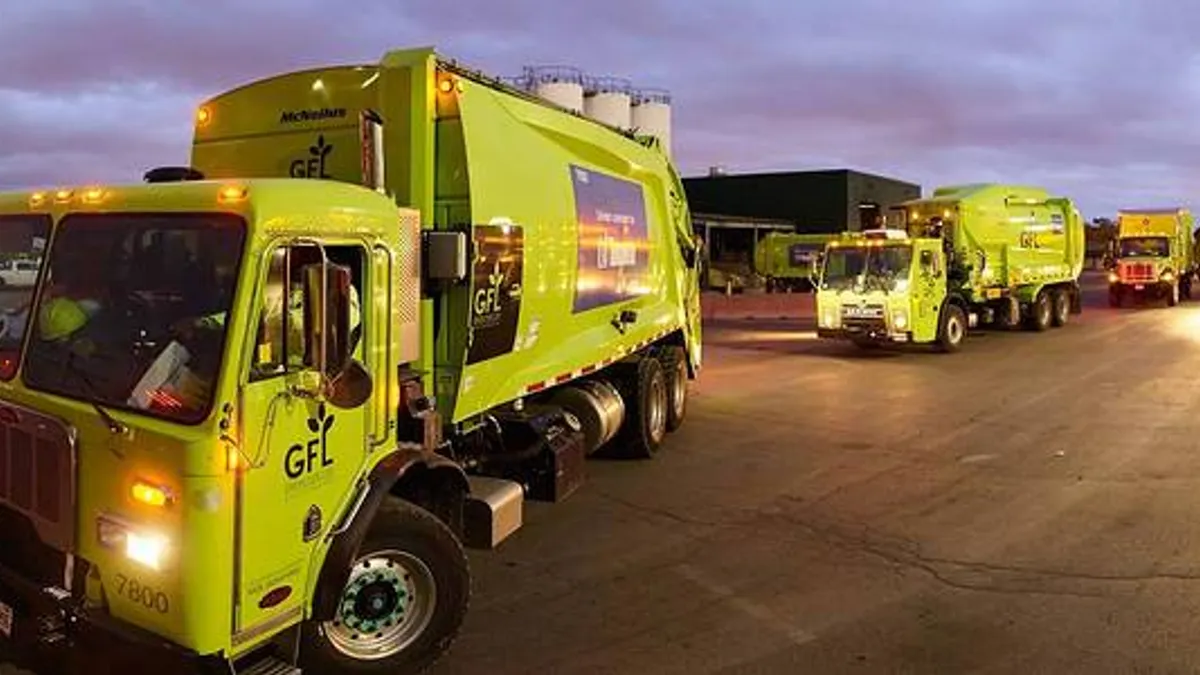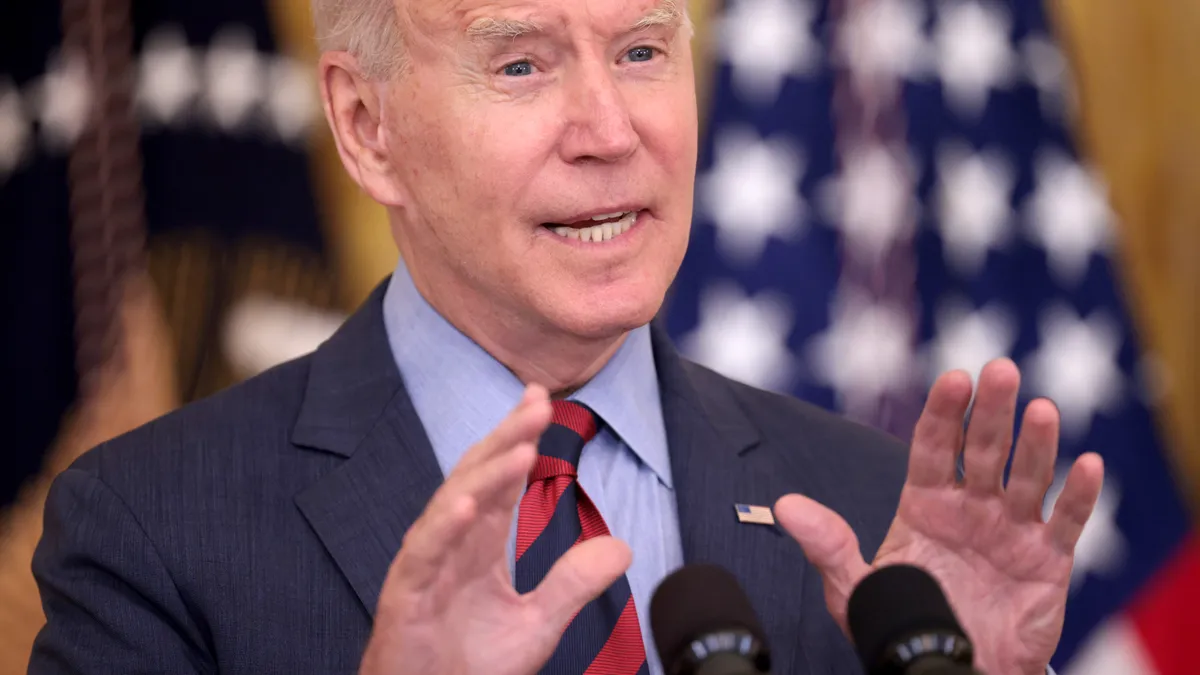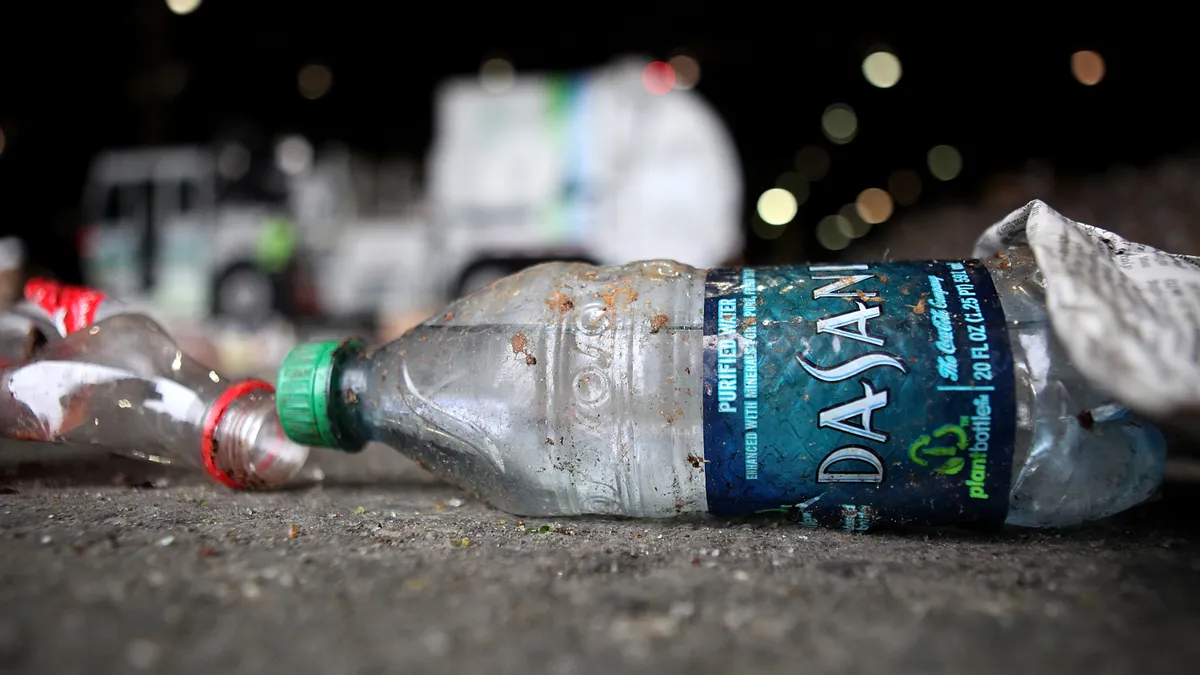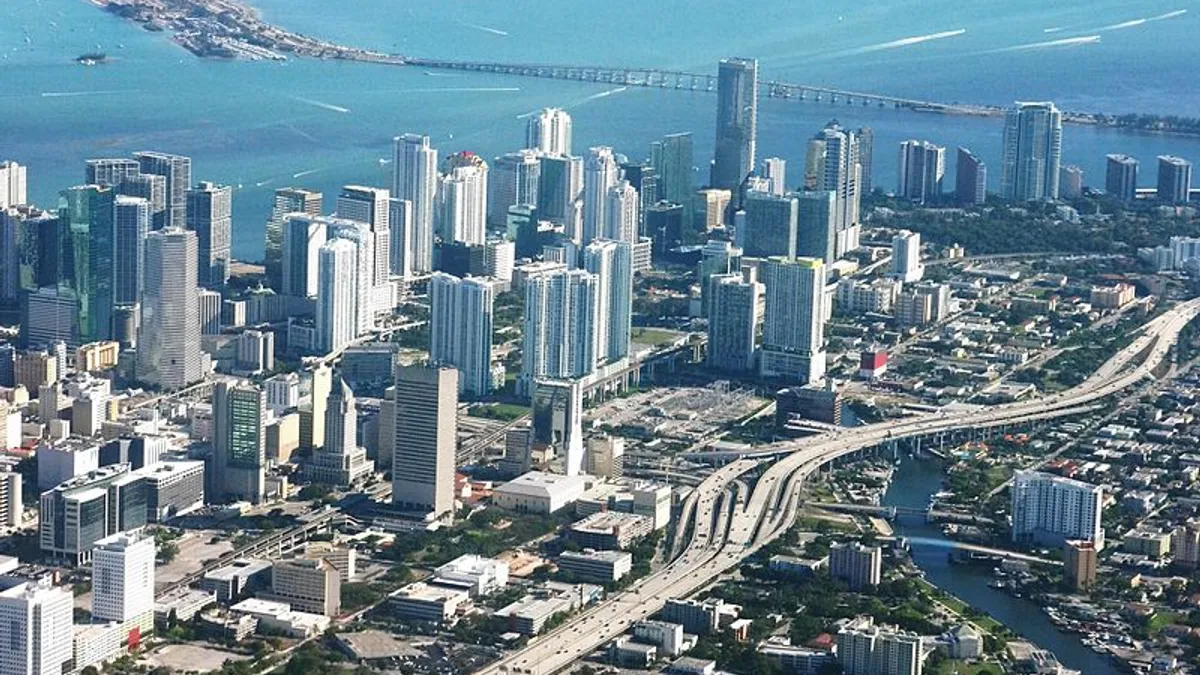In early October, Toronto-based GFL Environmental Inc. announced that it completed the acquisition of Rizzo Environmental Services Inc. and its subsidiaries, marking its first acquisition in the U.S. market.
Then a mere two weeks later, the Detroit Free Press reported shocking news for GFL and its CEO Patrick Dovigi: Rizzo Environmental was at the center of an FBI corruption probe, based on allegations that Rizzo was paying local politicians to help win collections contracts.
Dovigi, who said he discovered the news from the Free Press, said that it left him in "disbelief" and "a little bit in shock." He said there were no red flags that came up in the acquisition process also said it would have been "very difficult" for the company to proceed with the purchase while knowing of criminal allegations.
Yet, GFL is now Rizzo's parent company and is working to maintain a well-respected name in the Detroit metro area. Waste Dive caught up with Dovigi to ask about damage control and seek advice for companies in the process of an acquisition.
WASTE DIVE: How are your employees reacting to the news?
PATRICK DOVIGI: From the company's perspective, because I've been out meeting with every one of our customers and municipalities — we've been awarded three new contracts even in light of all of this — what's clear is that Rizzo has been providing as good or better service than any one of the competitors at a more competitive price. That message has been told to us loud and clear from our interactions with the communities we serve here and customers we service. From the employee perspective, our goal was to just make sure we got in front of the employees around here. They want to make sure they have a job and nothing's going to happen to their jobs.
It's great that you've been awarded three new contracts. Are you afraid you're going to lose any contracts due to the negative attention that Rizzo is getting?
DOVIGI: I don't think we are going to lose anything. I think the silver lining in all of this is that if this ever were to come out or if this was an issue, it sort of happened at the best time after we closed this acquisition two weeks ago. We've been able to draw a clear line in the sand that this is not the way we operate, we don't operate in this fashion, we compete fairly, and it's my goal to continue getting in front of everybody and telling that same story. We're going to provide the same service at a great price and that's what the message is and, I think from all of the communities that we've dealt with and have been in front of so far, I think everyone's happy with that. They're really just looking for a way for us to rebrand as quickly as possible and for disassociation from the Rizzo brand. Which initially, it usually takes a long time, but we really put that into sort of sixth gear and we've started the process now of rebranding.
We'll hopefully have the bulk of the rebranding, at least of the name, done within the next four to six weeks and then we'll start painting the equipment as we renew contracts, and some of the newer contracts will be coming in the winter months when it's a bit slower and we have more spare equipment laying around and can afford to take trucks off of the road.
Other than visiting municipalities, how else are you ensuring customers to feel confident with GFL?
DOVIGI: The biggest thing for us is we've given references from the municipalities we service in Canada. The communities we service in Michigan are extremely happy with the leadership of the existing group that serviced those contracts. So from supervisors to drivers to the management that managed their contracts day-to-day, none of those people have changed and there’s been no service interruptions since this story broke. The best thing we've done is just kept providing the exact same service that they had [with Rizzo]. They haven't experienced any service disruptions from all of this and that's been the biggest focus.
Hypothetically, if you had the opportunity to go back and do it over again, would you still go through with the acquisition? Would you do anything differently?
DOVIGI: There's nothing differently we could've done from a diligence perspective. We did a very thorough due diligence. There was a private equity sponsor involved in the business and they do a lot of due diligence on their own during this period, and as far as we can tell at the moment — we're still investigating — but we don't think they knew anything so, I don't think there's anything we could do.
The bottom line is we still bought a great company that has great assets that serves as a very good platform for us to grow. It's not how we originally thought about doing it, it's just not how we envisioned taking over an asset two weeks after we purchased it, but ultimately we did buy a good company with good assets. It's just some of the goodwill has been impacted just because of these allegations that have been made but ultimately we'll get through it. We perform the exact same services in Canada with a very similar business model to what they had in terms of providing the best service for the best price. That's sort of what we live and die by and I think they had largely done that themselves with the exception of some possibly inappropriate behavior by a few people but, that'll work itself out and there's nothing we can really do about that.
What advice would you have for other companies that are looking to acquire more or are in the process of an acquisition?
DOVIGI: We've acquired almost 60 companies since our founding so we've been through this a lot ... What I will say is that even in these contracts where there's been allegations of pay-to-play, what I can say is that ultimately, they were low bid on every one of these contracts and that's how we got comfort. So from my perspective, if they were winning these contracts and they were 10-15% higher than the next bidder, then we potentially saw a cause for concern but we did extensive diligence in just making sure that they were providing the best service for the best price which was their best sales pitch.
You do as much as you can both financially and environmentally and you have to make that gut-check call about whether that's a business you want to acquire. We've never run into this. I would say this is a rarity in this day in age that some of these shenanigans still take place. From our perspective, there's a bigger cause for concern around potential environmental liabilities versus, I don't remember the last time I read about a paying-to-play scheme since — well as long as I've been in the business I haven't heard of it, but maybe in the 70's and 80's there was stuff that transpired in the Northeast, but we haven't seen that in particular with any of the businesses we bought.
This acquisition was your first footprint in the US market. Are you looking to expand into any other US areas moving forward?
DOVIGI: When we entered the Michigan market we were looking at Ohio, Indiana and Illinois as our next sort of places to go but we're going to keep it in sort of close geography with what we covered here in Detroit.



















